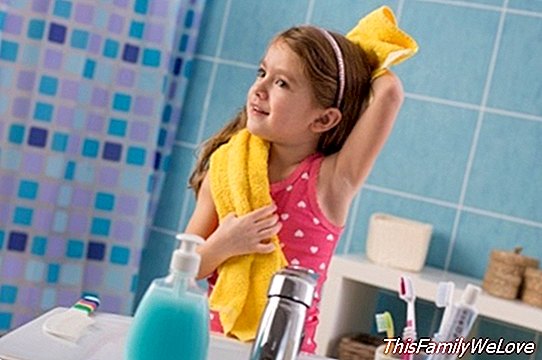Hygiene promotes virtues in children

Teach our children about hygiene habits not only involves the learning of some guidelines that will benefit you for your personal cleanliness, but also, Hygiene promotes virtues in thechildren. The habits related to Hygiene fosters virtues in children such as perseverance, willpower or order.
Although it is not always easy to achieve these habits, because it is often the case that our son is reluctant to comply or does not give importance to thedirt, We are building the pillars of a good education for the future.
But, why teach somehygiene habits it also supposes a learning in virtues? By teaching our son good hygiene habits we can achieve thatimprove other qualities and that the child is:
- Careful with its external appearance.
- Organized. These habits involve a routine that must be met and the objects needed for personal cleanliness in order.
- Self-demanding: they are not worth any way of doing things, but they will value things well done.
- Respectful of others. One not only cleans and looks after his image for his own convenience, but also to please others.
What values do children learn with personal hygiene?
From learning to strive to be and be clean, a series ofvalues as they are:
- Learning todo things well for the pleasure of doing them well. Good hygiene implies a good image and this implies the fact that things want to do well by themselves. Children should learn that they should be clean and clean because everything they do should do well, even that.
- Respect for others: the fact of going neat implies a satisfaction of one's own, but also a respect for others. The child has to be aware of the right that other people have to feel comfortable at their side.
- Constancy: like any habit, the toilet should be daily not when the child wants or costs less, but every day regardless of how easy it is to achieve it, or how much it may cost.
- Effort capacity: the fact of doing things well and learning to have a good hygiene implies, in many occasions, a greater effort or even more time. But we must teach them that this effort has a reward, mainly, for itself.
- Beat laziness: children, by nature, have a hard time carrying out good hygiene habits. They prefer to spend their time playing or doing other things than showering, brushing their teeth ... but they must know how to fight and overcome laziness so they can do it so many times consecutively that they can become a habit.
What hygiene habits can be taught to children?
If our child is still very small, but has enough capacity to learn to go neat (from 3 to 5 years old), these are the habits that can be assimilated:
- Wash your hands before and after eating.
- Brushing teeth.
- Use the cutlery properly on the table.
- Bath. Showering is something that requires some skill and speed, so it is better to teach him when he is a little older, from 6 years.
- Combing
- Sphincter control: learn to go to the bathroom by yourself and do not have your needs over.
- Wear clean clothes.
Conchita Requero
Advisor:María Campo, Director of Kimba Nursery Schools




